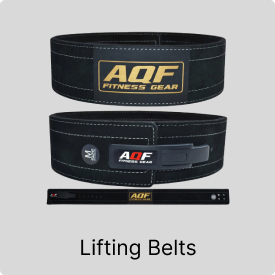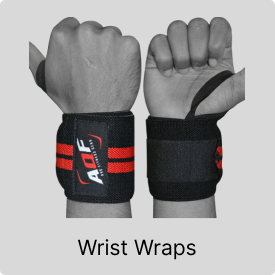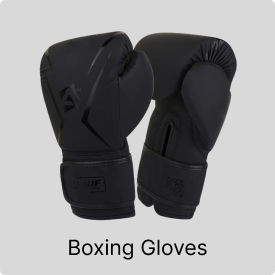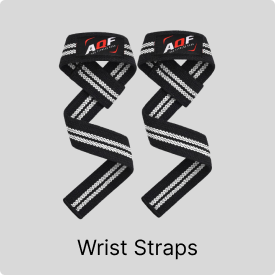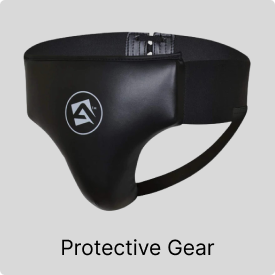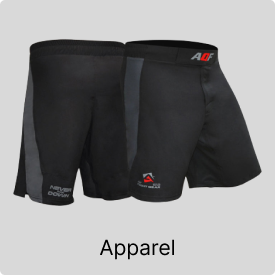15 Best Compound Lifts and Exercises to Gain Muscle Mass
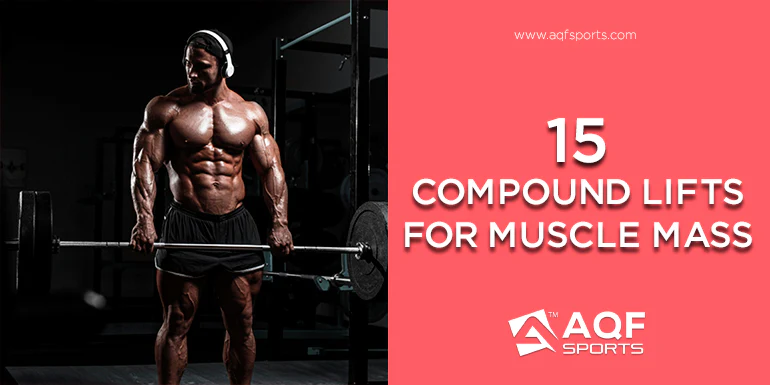
Increasing muscle mass and strength are common fitness goals for many people. And compound lifting is the perfect and the most effective way to build muscle and achieve fitness goals.
So what is compound lifting? Compound lifting is a style of training that incorporates exercises that target multiple muscle groups at once.
Most compound lifts include 2 to 3 joints being manipulated by muscle tissue simultaneously, like the knees, ankles, and hips, in the squat, or the elbows and shoulders in the bench press. The more joints move at once, the more muscles get used at once.
Read on to find about their benefits, the best compound exercises, when to include them in your workout routine, and safety tips to keep you safe.
Benefits of Compound Exercises
They Train More Muscles at Once.
Compound lifts recruit more joints at once through muscular contractions. The more joints that are acted upon in a single exercise, the more muscle mass working at a time. This can prove helpful in workout efficiency, overall strength development, and muscle growth.
They Let You Go Heavy.
By having to rely on more than one muscle group, you can load up your weights and go heavy. And that’s exactly what you need if you want to gain strength and build muscle.
They Burn More Calories.
Doing complex exercises that recruit more muscle groups while lifting heavier weights, are all the factors that burn more calories. And by lifting more weight, you utilise more glycogen stored in your muscles.
They Are Time Efficient.
Compound lifting is time efficient because it lets you select exercises that work large amounts of muscle mass at once. This shaves minutes off your daily workouts, and enables you to train while on a time crunch.
They Get Your Heart Rate up.
When done right compound exercises can get your heart rate up just likee cardio. The reason being that you use several muscles at once, So, to keep your muscles topped up with energy to lift heavy weights, the heart pumps harder.
When to Use Compound Lifts?
Compound lifts are wonderful movements to incorporate in any training program, especially for those who want to maximize their strength, muscle growth, power, and athleticism. It is better to incorporate them as foundational exercises in any training program. However, isolation exercises should also not be ignored as they can boost the overall effectiveness of a fitness regimen.
As a general rule, compound exercises should be fitted at the beginning of workouts when exhaustion is at its lowest. This allows you to perform more complex exercises with a better technique, lift heavier loads, and maximise the efficiency of complex lifting. That being said, you can also introduce complex lifts later in your workout sessions as long as you understand the benefits and disadvantages of both.
Best Compound Lifts to Build Strength
We have compiled a compound lifts list containing all the best compound exercises perfect for building muscles across all major muscle groups.
The squat works the strongest muscle groups (quads and glutes) to build a compelling foundation of support to enhance the advancement of the entire physique. It is unarguably one of the best compound lifts for glutes.
Moreover, the barbell squat is extremely systemic as the force required to squat heavy weights exerts tremendous pressure on the lower back spinal erector muscles, arms, waist, upper back, shoulders, chest, and even the arms, so if you are looking for compound lifts for arms, you can just do barbell back squat.
Also Read: 11 Weighted Squats Variations You Need to Add to Your Workout Routine
Looking for compound lifts for biceps? Do pull-ups as they not only target the biceps but also work the lats, core, traps, rhomboids, and delts. The pull-ups are one of the most effective ways to get a stronger back and biceps while boosting functional fitness. Plus, they are amazing for building grip strength.
And unlike chin-ups, pull-ups have the palms facing away from the body, thus shifting the priority to the back instead of the biceps.
Often named as the king of the upper body exercises, the bench press builds muscle in the shoulders, chest, triceps, and the back, which also makes it one of the most sought-after compound lifts for back.
The best approach to fully profiting from this movement is to emphasise the lowering stage; to completely stretch maximum muscle fibres you can on the descent, in a slow, controlled way. While all movements need to be controlled from top to bottom, many ‘drop’ the bar when they’re benching. This may help push out more reps, but it effectively negates half of the rep and seriously jeopardizes your mass building gains.
The barbell deadlift targets the upper back, lower back, glutes, traps, quads, and hamstrings. It is listed among the best compound lifts for mass and the most efficient compound lifts for fat loss. Barbell deadlift effectively builds total-body strength, increases stability, and boosts core strength which helps in building muscle, losing fat, and increasing strength.
The best way to do a barbell deadlift is to come to a dead stop instead of rebounding the bar off the rack pins or the ground or on each repetition, which removes momentum and forces more muscular action.
Related read: Romanian Deadlift: How to, Benefits, Tips, and Variations
Shrug
The shrug specifically targets the forearms and traps, so you can flaunt your toned arms when you go to the beach. Shrugs are usually performed using barbells or dumbbells and are excellent for boosting holding strength or power which comes in handy when doing other exercises.
If you want to emphasise particularly on your forearms, do the shrugs without using any lifting straps. On the other hand, if you really want to achieve enormous traps, then do not forget to use the straps so that you can concentrate purely on shrugging the big poundage.
Bench Step-Ups
Bench step-ups are great for anyone who wants to work on thighs, calves, and hamstrings. So by doing bench step-ups you can improve your resilience for sports like running and cycling as well as improve your stair-climbing game.
When doing bench step-ups, ensure that your working foot is completely on the bench and stable before each repetition. Besides, avoid “pushing” off with your back leg, and use the power of your working leg to push you upwards.
The squat is a supreme movement for building leg strength, by working the quadriceps, glutes, hamstrings, and thighs, as well as core and back strength. The squat can include but aren’t limited to: back squats, front squats, box squats, overhead squats, and all the weighted variations with kettlebells, barbells, and dumbbells, etc.
To get the most out of your squatting set, keep your head up and lower back slightly arched, as you squat gradually to a position where your thighs get just below parallel to the floor.
Related: How To Squat Properly? Squat Tips And Benefits
The lunge movements can be done to increase lower body strength and muscle growth of the legs. It works almost every muscle in the lower body including the glutes, quads, hips, calves, and hamstrings. They are tougher than squats as the split stance puts you in an unstable stance, that challenges your balance.
Lunging movements consist of but are not limited to bulgarian split squats, walking lunges, split squats, other variations involving dumbbells, barbells, bodyweight, and kettlebells, etc.
Done for triceps and the chest, the dip is one of the oldest compound movements. Responsible for building more shoulders, triceps, and chest than any other compound lift, the dip is a forgotten weapon in the war for a densely muscled upper body. As a perk, the dip forces you to work harder to fight more resistance (both the weight, which is added, and bodyweight).
Though they are most obviously a tricep exercise, dips are also a phenomenal way to work out your core and trim some belly fat.
Bent-Over Row
One of the original and the oldest big-muscle moves, the bent-over row recruits the lats, rhomboids, lower back, and traps to stabilise the body.
To get the most out of a bent-over row keep your knees slightly bent to support the lower back. Bend your torso around 80°. Don’t forget to pull the bar to your belly button to activate your lats to a greater extent, and closer to the chest to target more of the upper/mid-back musculature.
Military Press
Those who want to concentrate on building their total body strength need to perform military press while standing at least in every other workout session. The military press used to be the test or general indicator of someone’s strength in the military.
The military press targets the deltoid muscles in the shoulders, the triceps, and the upper pectorals. Moreover, it targets the legs and the core, which helps stabilise the weight. Just remember to not lean back too far, or it’ll become more of an “incline” press rather than a military press.
Dumbbell Shoulder Press on Exercise Ball
Dumbbell shoulder press on exercise ball is unarguably one of the most effective and reliable compound lifts for abs which not only targets the abs but also works the deltoids, triceps brachii, and the pectoralis major. So, this exercise is perfect for anyone who wants to know how do compound lifts build abs.
Besides, this movement is a great upper body exercise for overall stability and shoulder strength. You can incorporate this compound exercise in your routine if you want to improve your coordination and balance, because dumbbell shoulder press on exercise ball works on stability by incorporating the exercise ball.
The chin-up is a type of exercise which can be performed with a wide variety of grips. Chin-ups target the back muscles and the biceps. In case of chin-ups, the palms are supposed to be facing the body which shifts the emphasis more onto the biceps instead of the back.
In addition, chin-ups are generally easier to execute as compared to pull-ups. The reason behind this is that a wider grip of a pull-up isolates the lats, which entails that you get less assistance from the biceps.
Clean and Press
Clean and press is a mildly simplified edition of a clean and jerk. It’s great for building muscle, because it recruits so many areas in a go. It targets the core, hamstrings, glutes, quads, lower back, hip flexors, upper chest, triceps, delts, traps, and lats.
Clean and press is simply a close-body deadlift, succeeded by a shoulder press. The transition in the middle is the most challenging part of this activity. That is where you have to change your hold on the bar so that you can move from a pull to a push. You also need a decent amount of flexibility to catch the bar and stop with it front-loaded on the top of your chest.
Barbell Hip Raises
Barbell hips are a wonderful way to target your glutes and hamstrings. And because you can load the barbell up, you can truly get your posterior chain up to speed, which can also help you with a number of other exercises.
Barbell hip raises target the glutes, lower back, biceps, hamstrings, core, and hip flexors. They build size and strength of the glutes in a way many exercises can’t. And glute strength is vital for the stabilisation of the pelvis, lower body, and core.
Safety Tips
Compound exercises, such as deadlifts, require a specific technique to help you stay safe and prevent unnecessary injury:
- Collaborate with a fitness trainer or trained professional while performing a compound lifts workout routine, especially if you’ve never done these before. The professional can observe your moves to make sure that your technique is fine. Ultimately, you will be able to perform the moves on your own, safely. Still, it’s always a nice idea to ask a workout friend to observe you, while you perfect your 5×5 compound lifts.
- If you are just starting out, talk to an instructor or a fitness professional at your gym. They can help you figure out which weights you need to start with. A good rule of thumb is to start with a light weight that you can comfortably do 10 to 15 repetitions for one set.
- If you feel comfortable and stable enough, increase the weight in the second and third set of your full-body workout compound lifts. You can “feel the burn” over the last few reps, but must never feel unstable.
- Stay hydrated between sets and stop your workout if you feel woozy, light-headed, or sick.
Related: How To Lift Heavier Weights: Mistakes To Avoid & Tips To Follow
Always Incorporate Accessory Lifts
Compound exercises are perfect for making sure that your training is both effective and efficient. But it is also essential that you add accessory lifts to your heavy compound lifts – for example working out with dumbbells.
But what are accessory lifts? Accessory lifts are exercises that are performed to bulk up some specific muscles. For instance, if somebody’s back strength restricts them to a deadlift, they can use barbell rows to bulk up their backs. The pattern of movement is completely different, but they still work the relevant muscles. They help to sustain balance and enhance functional fitness. It’s also a wonderful way to work any weaker areas.
Are Compound Lifts Enough for Building a Muscular Body?
Yes, they are. The best way to build a muscular body via compound exercises is by doing the 5×5 program which is one of the most popular muscle mass building programs. This program is perfect to break plateaus, increase strength, and periodise.
It is designed to work the muscles hard three times a week, and then give them enough time to work on their recovery and growth. They not just increase strength but also increase muscle mass, provided you are consuming enough calories to support the muscle growth.
What Should Be the Rep Range for Compound Lifts?
The rep range can vary based on your fitness goals. If you want to build strength, then a 5×5 program will be perfect for you.
As far as the rep range is concerned, progressive overload has to be your main goal. However, do not focus on high rep training when doing compound exercises as it can result in overtraining.
The rep range should start anywhere from 1 rep max to 9 reps or the amount that delivers the most overload on your muscles. For sets, focus on 3 to 5 for the best growth.
Final Word
Compound exercises and lifts are a reliable and effective method to maximise your gains. The best way to do so is by mixing up your workout regimen every few weeks and introducing a few of these amazing exercises and lifts. Changing things up can help you work more muscle groups, avoid plateauing, and forestall boredom.
If you’re not sure how to execute a compound lift properly, ask your trainer or a fitness professional to help you out. They can demonstrate the right technique to avoid injury and prevent burnout. Once, you know the right technique there’s nothing stopping you.
Related articles:
- Strength Training 101 | The Ultimate Guide to Get Started
- Strength Training Program for Men and Women
- How to Get Tougher With 9 Effective Strength Training Exercises
- Strength Training for Runners | Complete Guide, Benefits, and Mistakes
- Top 12 Benefits of Strength Training That Boost the Health
- The Best Ways to Improve Grip Strength With Easy Exercises and Tips
